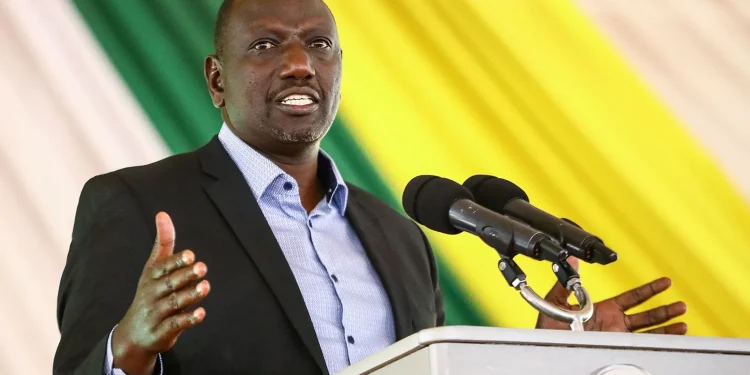President William Ruto has on Thursday declared an end to the era of loss-making parastatals, emphasizing the imperative for profitable entities to curb extravagant spending.
President Ruto’s directives encompassed stringent fiscal discipline across government and state-owned enterprises, mandating adherence to financial prudence where expenditures never surpass revenue intake.
Addressing chairs and CEOs of state corporations at State House Nairobi on Tuesday, President Ruto underscored the unsustainable nature of persistently loss-making agencies, deeming them burdens on the national treasury.
Against the backdrop of economic stability, he cautioned against further debt accumulation, emphasizing the perilous consequences of continued borrowing.
President Ruto condemned the misappropriation of public funds, stressing that revenues generated by parastatals belong to the populace and must be utilized judiciously for national development.
He pledged rigorous scrutiny of government budgets and expenditures, leveraging technology to curb irregular payments and optimize value for money.
The president’s directive included a comprehensive overhaul to eliminate redundancy, inefficiency, and the closure of unviable institutions. He highlighted instances of duplicative functions within parastatals, deeming such practices illogical and unsustainable.
President Ruto issued a resolute call for Kenya to live within its means, eschewing the habitual reliance on budget deficits. He set a stringent target for achieving a balanced budget within three years, acknowledging the arduous path ahead.
Furthermore, CEOs were tasked with slashing recurrent budgets by 30%, while profitable state corporations were instructed to remit 80% of their post-tax profits to the National Treasury. Regulatory bodies faced similar obligations, with 90% of surplus funds mandated for remittance.
In unequivocal terms, President Ruto emphasized the necessity of compliance with these directives, signaling a paradigm shift towards fiscal responsibility and efficiency across government and state institutions.
















